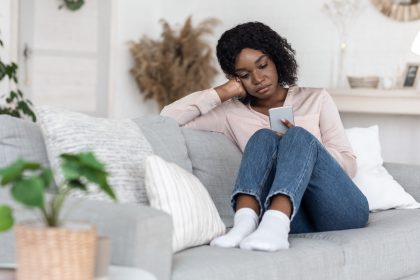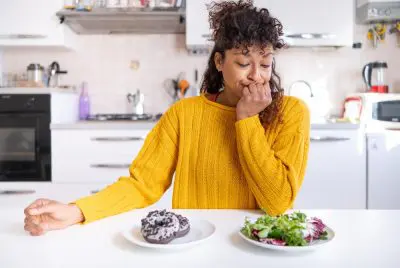
It was 2008 and I was going through a separation and divorce. I missed my family, I wasn’t working, and I moved back in with my mother. Some nights I would go to bed and just agonize over decisions I’d made and I felt like a total failure when it came to my life. I would cry out into the night asking God why me and I would never receive an answer. I wasn’t getting enough sleep. I didn’t interact with anyone. I essentially closed myself off from everyone. One day I woke up and realized I was depressed. It wasn’t a clinical diagnosis, I didn’t go seek any treatment; however, I knew I was not myself and I immediately started making changes in my life. I was fortunate enough to come to my realization, but many Black men are not as fortunate and suffer as a result of it. The only time I even considered any type of therapy was to save my marriage. The idea of seeking therapy for myself was foreign.
Many are told, “you will get over it,” “man up” or “pray on it.” These solutions, no matter how well-meaning, contribute to a culture that is not fully informed as to the seriousness of our mental health issues. According to a 2010 study by the CDC, African Americans have the highest rate of current depression (12.8 percent), followed by Hispanics (11.4 percent), and Whites (7.9 percent). Many factors like racism and unemployment contribute to these numbers.
Depression is real and many are suffering from it daily, but many people don’t realize it is a treatable condition. Talking to a family member or friend, changing your diet, and increasing physical activities can work toward reversing many symptoms of depression. Some cases may be more severe and require medical attention. This is not something to be embarrassed about or shy away from. The goal is to be our best possible selves and it starts with our minds.
Check out the list below for the top 10 signs of depression, according to mentalhealthamerica.net.
· A persistent sad, anxious or “empty” mood, or excessive crying.
· Reduced appetite and weight loss or increased appetite and weight gain.
· Persistent physical symptoms that do not respond to treatment, such as headaches, digestive disorders and chronic pain.
· Irritability, restlessness.
· Decreased energy, fatigue, feeling “slowed down.”
· Feelings of guilt, worthlessness, helplessness, hopelessness, pessimism.
· Sleeping too much or too little, early-morning waking.
· Loss of interest or pleasure in activities, including sex.
· Difficulty concentrating, remembering, or making decisions.
· Thoughts of death or suicide, or suicide attempts.
Take the Mayo Clinic’s depression self-assessment here: https://members.mhn.com/web/public/default/Mayo/MH00103_D














